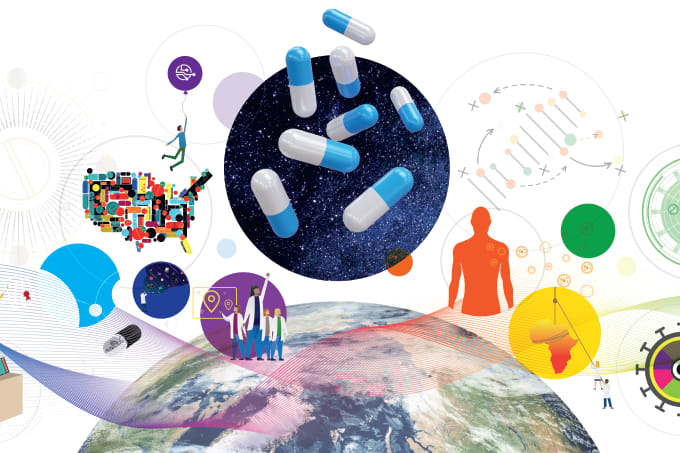What we asked: “Looking ahead to the next 5–10 years, what will be the key disruptors and/or what can be improved upon in the pharma industry?”
Response from: Quita Highsmith, Vice President and Chief Diversity Officer, Genentech
There are many advances and transformative discoveries across the pharmaceutical and biotech industries that are worth celebrating. But not all communities reap the benefits of these innovations equitably. The most meaningful way to dramatically improve the industry is by maximizing its impact for all patients. We can’t do that if clinical research continues to exclude historically underrepresented and underserved communities.
We need to stop blaming communities of color and other underrepresented groups for low participation rates in clinical research, and focus on making ourselves accountable and trustworthy community partners. We can’t just go into communities when we need them – we must proactively embed ourselves as accessible partners who are seeking to understand their perspectives and lived experiences. That would revolutionize the industry, and exponentially deepen our potential for impact.
One day, all clinical research will reflect the diversity of the communities we serve, and our industry will be transformed for the better. As we work to get there, there is no one easy solution to closing the gaps that currently exist. It will require real work and dedication from all players across our industry to eliminate the barriers to access and repair the justifiable mistrust that prevent underrepresented communities from participating in vital clinical research – often for diseases that disproportionately or differently impact them.
Strides are being made in our industry, but we can – and must – do more. This work isn’t owned by one company or organization. We have a collective responsibility across our industry to work toward a shared vision for health equity. And we must hold ourselves accountable by sharing our successes and lessons learned so that we can continue to learn and evolve on the journey to a more equitable future.
Response from: Campbell Bunce, Chief Scientific Officer at Abzena
We need to reduce the development costs and timelines for highly targeted treatments. Over the last ten years, with the rapid advances in understanding biology and the advent of technologies such as CRISPR, modern medicines have become more and more highly targeted. This degree of precision provides highly effective molecules for very narrow indications, moving very much away from the ‘one-size fits all’ characteristics of blockbuster medications of the past.
However, developing a drug to service a small population, even slightly larger than that of an orphan disease, often comes with prohibitive costs without the larger return to justify the expenditure. Reducing the development costs and timelines for highly targeted treatments is imperative. For Orphan Drugs there are well-established accelerated pathways that were introduced in 1992. Adopting similar approaches for indications with slightly larger populations could bring life-changing treatments to patients more quickly. This shift in the development paradigm, while ensuring appropriate safeguards and rigorous post-licensure obligations, would speed up the availability of new therapies and inspire a new era of medical advancements.
Read over 100 other views on the future of the pharma industry on our special web page.




